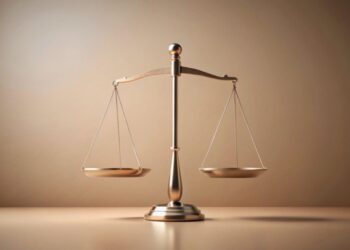“Oh my God, he’s gone!” Those are among some of the most heart-wrenching words anyone can ever hear in their lifetime. Whether it’s caused by an accident, medical malpractice, or even criminal activity, losing someone we love is never easy.
However, when someone passes away due to someone else’s negligence or wrongdoing, it only adds insult to injury. Although no amount of money can ever bring back a lost loved one, holding those responsible for their actions can give closure and help survivors put their lives back together.
So who can file a wrongful death claim on behalf of the deceased? Let’s take a look at some of the rules and requirements involved.
First Things First – What Constitutes A Wrongful Death?
According to law.com, “Wrongful death occurs when somebody dies due to negligence or wrongdoing on the part of another person.”
Examples include; car accidents caused by drunk drivers or dangerous road conditions, defective products that cause fatal injuries, and medical procedures that cause more harm than good.
Who Can File A Wrongful Death Claim?
As per the legal information institute, “A wrongful death claim is usually filed by a representative of the estate on behalf of surviving family members.” In effect, this means that surviving spouses may file a claim if they were legally married at the time of death; children may file if they were biological or legally adopted through court proceedings before death.
The next question you might ask yourself is: what about siblings?
Unfortunately, not all states will allow siblings to file – only certain criteria have been outlined (such as dependency on the deceased).
Steps To Filing A Wrongful Death Claim
Filing a wrongful death claim can be an overwhelming experience, especially because you’re still grieving, but following these steps might help ease this process:
Contact An Attorney
You will need experienced lawyers that are well-versed in this field of law to assist you with the nitty-gritty of the filing process. In the event that there are multiple plaintiffs for a wrongful death lawsuit, it can become quite a complex legal procedure to navigate. Hence why having an experienced wrongful death attorney at your side is essential.
Gather Evidence
In order to file a wrongful death claim on behalf of your loved one, you will need information (such as medical records and accident reports) pointing out that another person’s negligence led to their fatality. Your lawyer can also investigate to see whether the defendant has any criminal record from the past.
Establish The Cause Of Death
Your lawyer must help you establish both the cause and manner of your loved one’s demise. Some examples of causes include intoxicated driving or poor working conditions.
File A Claim
The next logical step would be filling the actual lawsuit after all required evidence has been gathered and established before the court hearing date has been scheduled with the judge.
Damages You Can Seek From A Wrongful Death Claim?
Usually intended in a mitigation sense, damages awarded from a wrongful death claim ensure financial compensation is given to survivors who have suffered monetary losses due to their loved one’s passing, such as supporting himself/herself through college without taking student loans, creating new sources of passive income stream outside employment (i.e., investing). Damages may also include amounts paid pertaining to funeral expenses such as mortuary expenses, caskets, etc.
Pain And Suffering Compensation
More often than not, surviving family members are typically personally affected psychologically by trauma caused by the loss of loved ones. Vicarious pain and suffering from losing someone close cannot be quantified. However, emotional instability accompanies grief over lost ones. The aim here is to give assurances that nonfinancial loss will be covered because —even though no amount of money can replace what they’ve lost— financial settlement goes a long way towards coping mechanisms needed by them during the grieving period.
Filing a wrongful death claim isn’t easy, but it’s certainly necessary in order to secure justice and assistance for families who otherwise face huge financial obstacles while also facing the enormous emotional pain that comes with losing someone they love.
In conclusion, if someone you care about has passed away due to the negligence or wrongdoing of another person, it’s essential to understand your legal options. In some ways, taking the responsible perpetrator down ensures such action will prevent others from suffering similar losses, further ensuring the safety of others. So reach out for help today!









